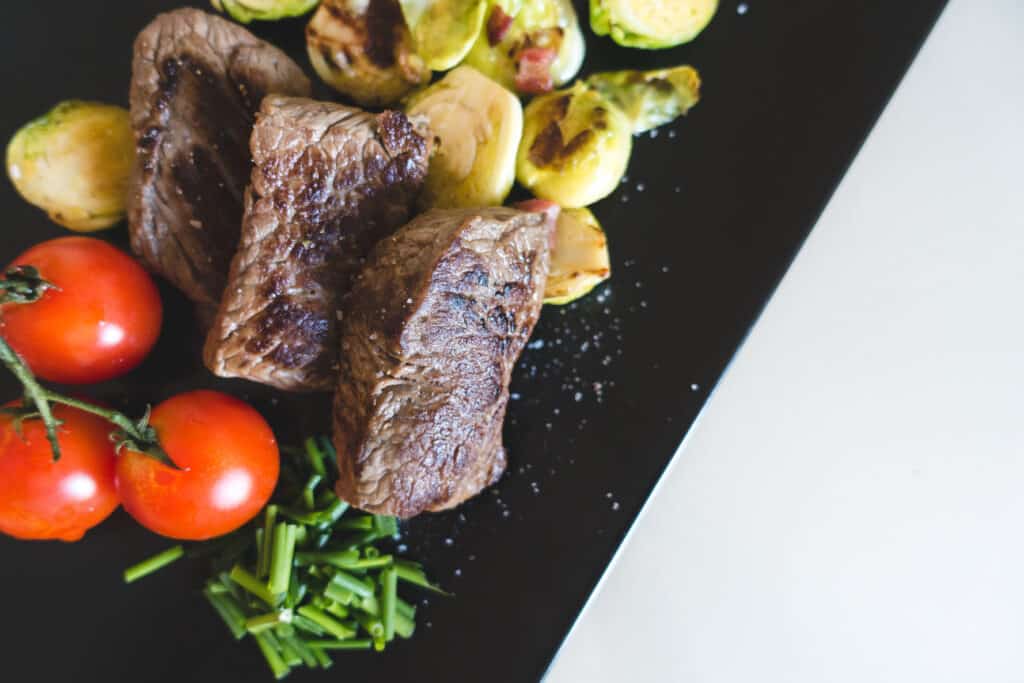Sustainable food: the impact of meat


We often talk about the impact of meat, but why is it considered so polluting? Are all meats equal when it comes to greenhouse gas emissions?
Although vegetarian and vegan diets have a considerably smaller impact on resources, it still seems possible to adapt one's diet so as not to deprive oneself.
To minimize its impact, it is therefore not essential to drastically change one's diet, but some modifications can be made.
While a conventional diet is estimated to cause 1.6 tonnes of CO2e per person per year, more responsible meat consumption could reduce these emissions to 1 tonne.
In this article, you will find the keys to understanding, acting on and reducing the impact of a meat-based diet.
According to the FAO (Food and Agriculture Organization) , meat production is responsible for 14.5% of greenhouse gas emissions from human activities (equivalent to emissions from the transport sector).
Greenhouse gas emissions from the livestock sector can be explained by several factors:
In addition to this, there are the conditions of meat storage, transport, but also the treatment of waste in the case of food waste.
Generally speaking, each element of meat production emits greenhouse gases. While the sources of emissions are broadly the same, the quantity differs depending on the type of meat.

Source: FAO


Check the origins of the products consumed:
Meat imported from abroad will inevitably have a greater environmental impact. Despite a 7.5% decrease in imports in 2020, they remain high and represent 30% of meat consumption in France (AGRESTE) .
Similarly, organic meat will have been raised under more environmentally friendly conditions. In the case of organic meat, synthetic chemicals and GMOs are prohibited, and all elements of the supply chain must be controlled (water, fertilizers, hedgerows, biodiversity). Emissions can also be reduced by eliminating transportation between the farm and the meat production site, which generally takes place on-site.
The decline in overall meat consumption in France is accompanied by an increase in the share of organic meat products, which rose from 8% to 18% between 2013 and 2020
Limit the frequency of consumption:
Taking part in certain initiatives or movements, such as Green Mondays , promoting more responsible eating by replacing meat and fish at least every Monday.
Diversify protein sources:
Explore plant-based alternatives such as legumes, tofu, nuts and seeds, which are excellent sources of protein and have a smaller ecological footprint.
Reduce food waste:
Every year, millions of tons of meat are produced. Unfortunately, a significant proportion goes unconsumed and is wasted at various stages of the supply chain, including by consumers. By being more mindful of our purchases and planning our meals, we can drastically reduce this waste, and that's our daily mission at Kikleo.
Sources: FAO ; Notre -environnement.gouv ; Agreste.agriculture.gouv ; Impactco2.fr ; Libraire.ADEME .
Would you like to take action against food waste
Kikleo helps you reduce food waste and increase the performance of your restaurant by offering you a analysis of your losses using innovative technological tools.